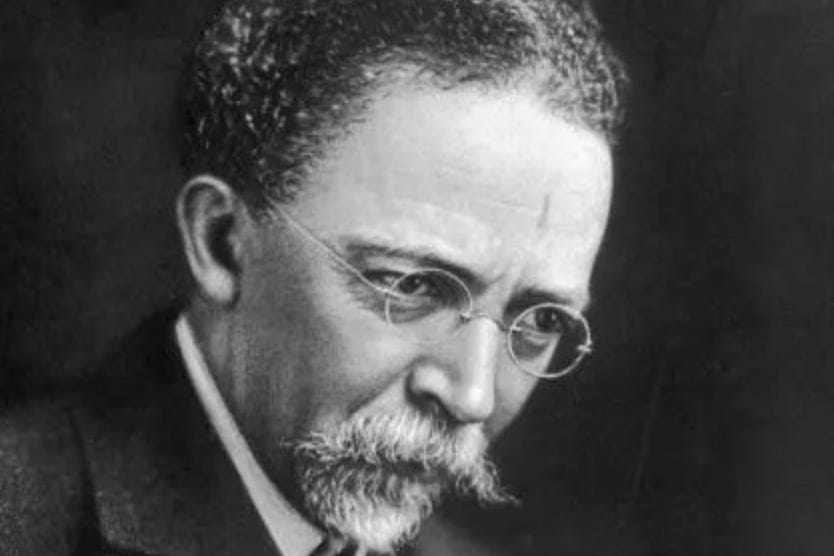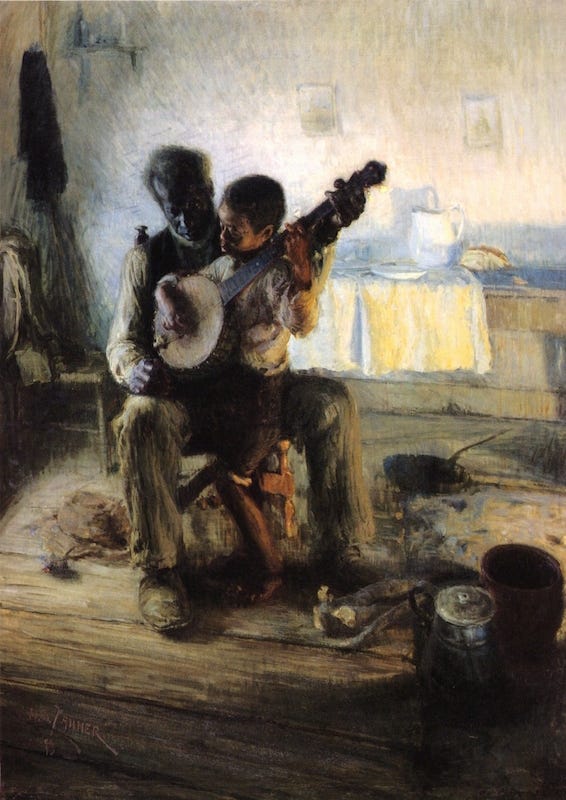Imaginate The Anthmatic
“Do you think that I count the days? There is only one day left, always starting over: it is given to us at dawn and taken away from us at dusk.”― Jean-Paul Sartre
Josh Rosenthal has been elevating modern guitar music for decades now. His series, Imaginational Anthem, which just released its incredible eleventh installment, is a celebration of all forms of instrumental acoustic guitar recorded performance (often called “primitive guitar music”) and each shows the diversity and beauty of the craft. Most of the ‘Anthems seem to erupt from the big bang of the 1960s, when artists such as John Fahey and Robbie Băsho (among many others…Peter Walker, Max Ochs, Harry Taussig, anon) started gathering various musical theaters and infusing them into the strings. Rosenthal explains, “While rooted in Mississippi Delta Blues, both men had a vision of playing music from around the world - African kora music, Indian raga, musique concrete, European classical all creep in. Băsho has more Asian influence. They really elevated the guitar as a solo concert instrument.”
All transparency: Josh Rosenthal is a dear friend. But that does not stop me from being in awe of his work. He recently handed my Imaginational Anthem XI, curated by Luke Schneider and focusing on modern pedal steel recordings. He handed it to me in the form of a cassette (with other formats coming)…and holding the release, being reminded of the ten other volumes that came before it, brought to clarity what Rosenthal is doing. As Harry Smith did with his American Folk Anthology, what Eric Isaacson is doing with his ongoing soul anthology series, what Martin Scorsese and Ken Burns do whenever they direct an expansive look at a musical genre, Rosenthal is doing for modern guitar music: he is telling its story, framing it in history, gathering an ever growing cast of characters who are elevating the craft, celebrating the sounds...often bringing in curators/enthusiasts to highlight a certain genre niche. This is the work of the enlightened record man.
A few years ago, bandcamp did an overview of the entire series, and it is very much worth the read. I would suggest that anyone who follows the series has favorites…ones that seem to stay on the turntable for extended periods of time. And while all of them are needed...as every Encyclopaedia Britannica was needed back in the day, from A to Z, here are a few that I cannot stop listening to:
Imaginational Anthem Vol. 1: The first defining compilation of series, featuring heavyweights, grey and new, like Jack Rose, Glenn Jones, John Fahey, and even Terry Riley. I do not think anyone envisioned what was to come when this release hit the market. But as a standalone unto itself, the gorgeous recordings featured here by such luminaries is worth its weight in gold. When is the vinyl release coming? (you can get Vol 1-3 together on bandcamp).
Imaginational Anthem Vol. 6, Origins of American Primitive Guitar: Rosenthal brought in one of his go-to curators, musicologist Chris King, to piece together a yellow brick road of primitive playing that sets the stage of what is to come in the 60s. This anthem is a sublime meditation, with Sylvester Weaver being my stand-out favorite (I have since hunted down the compilations of his recordings). I have to say that I love most anything that King touches; his work here is tremendous.
Imaginational Anthem Vol. 8: The Private Press: Rosenthal opened up worlds with this anthem, featuring unknown wondrous, distinct players whose recordings have been lost via limited pressings barely released mostly in the 70s and 80s. Curated by Michael Klausman and Brooks Rice, these picked DIY recordings belong in the pantheon of the aftermath of the primitive guitar big bang of the 60s. The Keithe Lowrie Duet’s Snow Queen is a magical prophecy to Six Organs of Admittance while Lee Murdoch’s Where The Pinery Narrows is a meditative jewell. All the tracks on this double LP are killers.
On a hot day like today….on the longest day that is the Summer Solstice (Happy Summer Solstice everyone!) the light breezy sounds of the acoustic guitar make a great soundtrack. Oh yeah.
Lee Ranaldo :: The Aquarium Drunkard Interview
A great deep dive of an interview with Sonic Youth founder Lee “is free” Renaldo. The video he recently made (discussed in the article) is very much worth a watch and the new instrumental record (also discussed and imbedded into the article) is on of my favorites of his.
Listen to Nina Simone's breathtaking isolated vocals on 'Strange Fruit'
Stunning….
Jean-Paul Sartre & Albert Camus: Their Friendship and the Bitter Feud That Ended It
Today is Jean-Paul Sartre’s birthday (he would have been 117) and a good enough reason to post this intriguing, dense article I came upon recently about the tangled relationship between him and another literary giant Albert Camus.
Wangechi Mutu Bronze Works Take Over the Storm King Art Center
Kenyan artist Wangechi Mutu is known for using her art as a megaphone to discuss women’s issues, as she does with this new exhibit. The work at the Storm King Art Center (great name) is also her most psychedelic, with subjects melting into each other. Such great stuff.
Writer had a ringside seat at S.F. music scene through Chris Isaak’s guitarist, who died homeless
As an Intern at the infamous CD Records label when I was 16 years old, I quickly got to know the guitar exploits of Jimmy Wilsey when sending out Avengers reissues to radio stations. I saw the guy play with Chris Isaak so many times growing up in San Francisco…you couldn’t really miss them…especially during their epic multi-week run at the Nightbreak on Haight Street. It was not until the early ‘aughts that I met Jimmy over at the Rosenthal compound during some of their epic music evenings. He was such a sweet guy: unassuming…never letting on to his guitar slinging history…all smiles and kindness. Such a pity that he was not celebrated during life; great to have his legacy lifted up.
Residents hold Juneteenth art pop up to help save famous Tanner House
“‘It tells a story of the history of North Philadelphia in relation to the African American community,’ said Judith Robinson, Friends of Tanner House. ‘It's one house and many stories.’ The once home to world renowned artist Henry Ossawa Tanner is dilapidated. The walls are bucking. There's extensive water damage to the floors and the roof of 2908 West Diamond Street in North Philadelphia needs replacing.”
Stephen King Compares The Black Phone to One of His Movies
“The upcoming The Black Phone isn't based on a story written by Stephen King, it's actually based on a story written by his son Joe Hill, but the acclaimed author and sometimes film critic has seen the movie and he has thoughts…director Scott Derrickson revealed King's reaction, telling the outlet: ‘I know that [author Joe Hill] showed it to his dad, and Stephen King's comment... to Joe was, 'It's 'Stand By Me' in hell,’ which I thought was great.”
AT THE THURSDAY NIGHT JAM, REMEMBERING AN ABSENT SINGER
By: Henry S. Taylor
W. R. B., 1915-1995
Suppose he held some notes the rest of us
never quite caught, exactly, for all his singing,
the old LPs, sheet music by the ream,
the plunder of an aging amateur;
still, every now and then he nailed it hard:
a bar or two would ride the stricken air
and lift us to a treasured patch of grief.
A mountain's shadow at sunup, sliding down
a slope on its western side, the small clear gap
above a smokestack before the vapor clouds,
could hold us weightless in a mellow tone.
Some couples, when they dance, are dancing now
and dancing years ago, lifetimes honed to this.
Musicians, watching, lean closer together
and work a little tighter, thinking back
to their own favorite brush with faultlessness.
On a salt-specked wharf one August, late sunlight
was ricocheting off the brass and wood
and acrobatic fingers over keys;
the music rose so far into the world
that even deadpan gulls swayed as it swayed,
and we were all just lucky so-and-sos.
On certain evenings since his last sweet session
the troubles on our minds make way for songs
it's hard to hear in any voice but his,
and now, as dusk leans in and lights come on,
an old friend starts to tune an upright bass,
a muted trumpet tests the atmosphere.















Just want to say how much I'm enjoying this journal, David, as one aesthete to another! (I had a poster-print of "The Banjo Lesson" on my wall from early age through my Ophage.) I see we are zigzagging this course in simpatico and intersecting constantly. All the best this solstice and beyond.